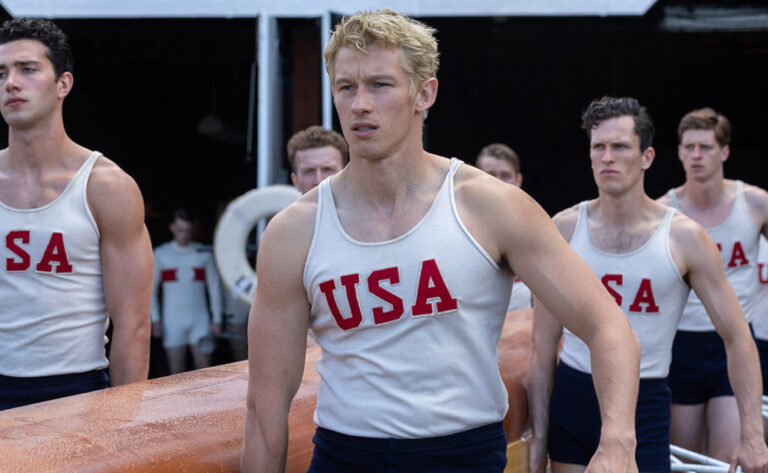George Clooney’s “The Boys in the Boat” is a classic film, celebrating traditional determination. Inspired by a chapter from Daniel James Brown’s 2013 book, it’s set during the challenging times of the Great Depression. The film highlights the University of Washington’s junior varsity rowing team and their remarkable journey to the 1936 Olympics, an event that captivated around 300 million radio listeners worldwide. The movie is filled with scenes of enthusiastic support for these admirable, amateur athletes.
The film showcases the American eight-man rowing team, historically dominant in the Olympics since 1920. However, scriptwriter Mark L. Smith chooses to focus on the economic and social challenges faced by these particular rowers. Unlike their Ivy League competitors, the University of Washington team consisted of students from modest backgrounds, using rowing as a means to afford their education. Lead character Joe Rantz, portrayed by Callum Turner, is a symbol of perseverance, coming from humble beginnings. The narrative emphasizes the contrast between wealthy and less privileged teams, setting a backdrop of an underdog story.
The film’s storytelling is direct, with clear emphasis on key themes. However, it misses out on deeper character development, especially how the team unites to achieve success. Key rowers like Don Hume and Joe Rantz are underexplored, and other team members are not given much attention. The character of coxswain Bobby Moch, played by Luke Slattery, brings energy to the film with his unique, antique megaphone.
The film marginally touches upon female characters, focusing more on its impressive production design. George Clooney’s attention to detail is evident, especially in scenes depicting the era’s culture and sports enthusiasm. The film also lightly addresses the political backdrop of the time, including a brief interaction with Jesse Owens and a depiction of Adolf Hitler, but does not delve deep into these aspects.
“The Boys in the Boat” is visually engaging, with cinematographer Martin Ruhe recreating iconic scenes, adding a modern touch to historical events. It’s rated PG-13 for some language and smoking scenes, and runs for 2 hours and 4 minutes.
Editor’s Note: Correction on Historical Accuracy
A correction made on December 26, 2023: An earlier version of this review incorrectly spelled the surname of the character Joe Rantz, a key member of the U.S. Olympic rowing team.


